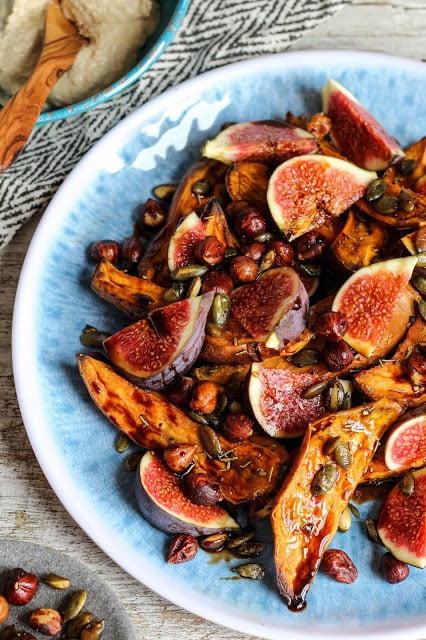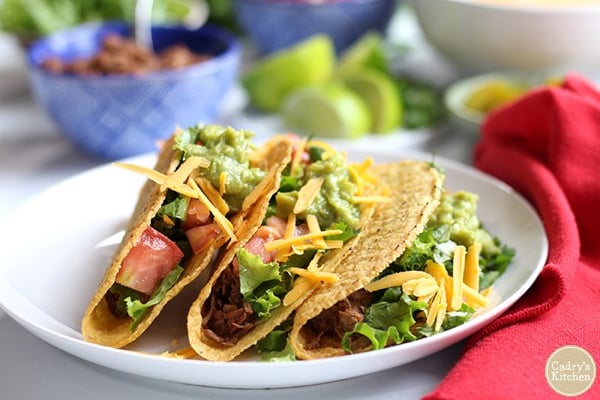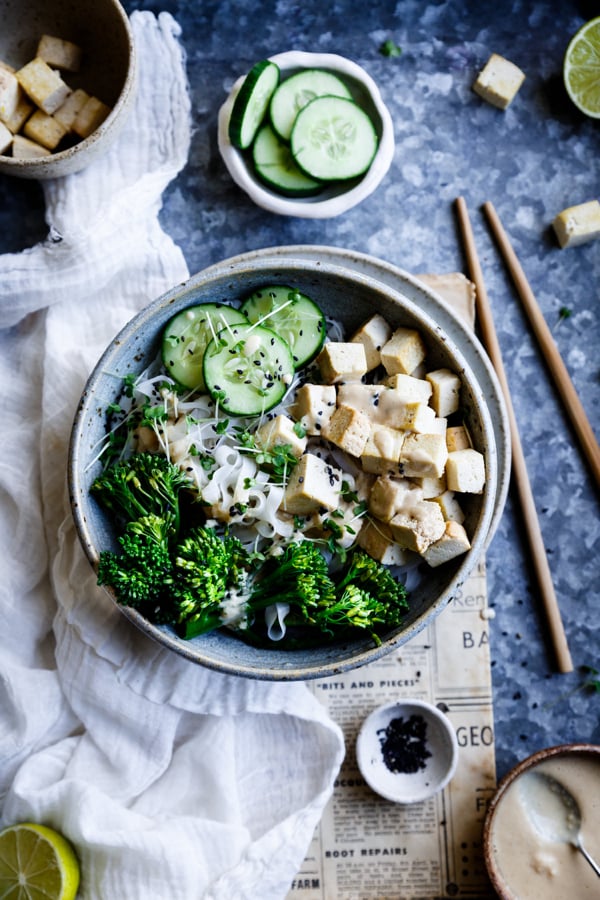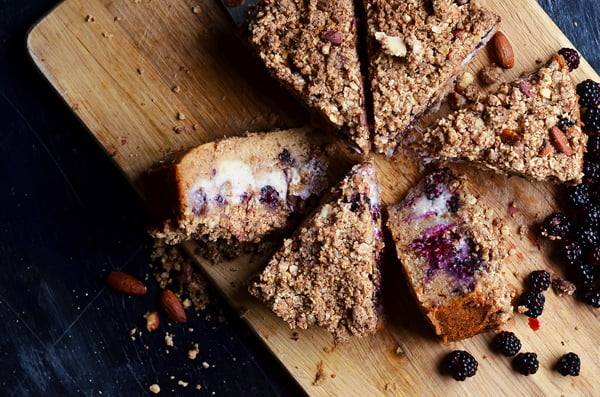My current DI placement is at a nursing home that offers both long- and short-term care. I’m learning a lot about what and how people eat when they’re recovering from surgeries or in the process of rehabilitation. And I’m gaining a better understanding of food choices and habits toward the end of life.
Not surprisingly, much of what people ask for are simple, familiar, and comforting foods. This echoes an insight that struck me when I read Being Mortal a year or so ago. Gawande, who researched end of life care among others and also examined it within his own family, notes how often the priorities people delineate at the end of life are simple and quotidian: continuation of a daily activity or longtime hobby, the company of loved ones, everyday pleasures, from favorite foods to cherished pieces of music.
I spend a lot of time thinking about how to make food interesting and different. Part of the task of cookbook writing is to come up with variety, and part of vegan food activism, I think, is to present plant-based ingredients to non-vegans in an enticing way. Sometimes this means giving a lot of thought to creative and innovative preparations.
More and more, though, I’m coming to understand and recognize that the power of food and our attachment to it resides in anticipating and then enjoying something we already know and love. When I’m stressed, sick, or heartsick, I tend to crave the same few simple dishes. When life feels overwhelming in any way, I want to cook, but I don’t want to try too many new things. I lean on the dishes I love because I can trust in the pleasure they’ll give me.
Funnily enough, just as I’ve been observing others in their own relationships to food and eating, I’ve been having my own burst of excitement around food at home. I didn’t want to cook this past summer, first because I wasn’t feeling well and didn’t have much energy for it, and then because I just wasn’t in the mood. I’m used to this: I go through cycles of excitement and aversion with cooking from time to time. After I tested and re-tested recipes for Power Plates, I was so tired of cooking that I didn’t chop a single onion or make a single new recipe for nearly two months. The desire to cook came back, as it always does, but it took a while.
It’s coming back to me now, spurred on by the need to have food at the ready for when I get home from work and pack up my lunch every day. But it isn’t all necessity; some of it is a particular, insuppressible joy around cooking, which peeks its head into my life from time to time, often when I’m not expecting it. For the past few weekends, I’ve told myself that there are many things I ought to do or catch up on in the wake of my busier-than-usual weeks. Instead, I usually end up cooking. It’s the thing I want to do more than anything else. I wonder if my work is giving me new appreciation of what a gift it is to be in the kitchen.
Meanwhile, the theme of simplicity and unfussy, comforting meals is resonating, because while I’m cooking up a storm, I’m leaning heavily on some of my favorite plant-based meals: braised lentils on toast. This chili. Tofu scramble. The aloo gobi from Power Plates was a favorite last week, along with the yellow split pea soup the week before. Potato leek soup is on the menu soon.
In other words, all of my excitement about food is expressing itself through dishes that are largely familiar to me, and which have sustained me in the past. Tofu scramble was one of the first vegan recipes I learned how to cook, and I may have eaten it for dinner several times a week for the better part of a year. Braised lentils on toast got me through my last breakup. The potato leek soup—in addition to being a favorite recipe on this blog—was my go-to meal during the busiest semester of my masters program.
In long-term care settings, many residents lose access to activities, freedoms, or movements that they previously enjoyed unencumbered. Food is an arena in which they still have an opportunity to voice preferences. This has been an important observation for me. It echoes something I’ve always felt about food, which is that of course it’s a matter of sustenance and nourishment. But it’s also a place where we can come to ask for and get what we need. There’s a lot of meaning embedded in the act of requesting, making, or being given a beloved dish.
I’m happy to be meeting my own needs through cooking as I show up to work each day and ask other people what they’d like to eat. It feels like a form of connection, albeit a private one. Wishing you all the capacity to take what you need from your meals and your food in this coming week. If you need a little inspiration, here are some recipes that caught my eye.
Recipes
I’m bookmarking this beautiful maple roasted sweet potato and fig dish to make as soon as I can, before figs slip away from the farmers market.
Now that I’ve gotten into jackfruit, I’ll have to make my friend Cadry’s tasty looking jackfruit carnitas tacos.
Kimberly’s also got simple food on her mind this week, and she’s shared a beautifully simple vegan satay tofu recipe accordingly.
Sweet treat #1: a scrumptious cheesecake/crumble cake mashup from The Hungry Herbivores.
Sweet treat #2: a beautiful coffee and walnut double chocolate cake, which is GF in addition to being vegan.
Reads
1. The UN reports that global hunger rose in 2017 for the third consecutive year, fueled by conflict and climate change.
2. We just turned the corner on Suicide Prevention Week. As the week wrapped up, I read and admired Rachel KallemWhitman’s candid reflections on past suicide attempts and the place they hold in her story.
3. Sarah Spencer, a software engineer living in Melbourne, has knitted a map of the cosmos containing all 88 constellations. Until this project, Spencer had knit nothing bigger than a baby blanket!
4. Good reporting from Vox on myths and misconceptions surrounding human metabolism.
5. There’s been a lot of news coverage about the risk of hog waste contamination in the aftermath of Hurricane Florence. This article does a particularly good job of summing up why the problem isn’t getting solved, in spite of numerous scares like this one. My prayers are with all of the people and animals whose lives might be touched by the storm.
I’m about to settle into a long and hopefully productive day of batch cooking for the week ahead, catching up on work, and a little evening time with my mom. This week, I’ll be sharing a simple, 5-ingredient tofu cream cheese recipe that’s been a big part of my breakfast routine lately. Till soon!
xo
You might also like
Today’s the last day of NEDA week 2017, and this weekend reading roundup places special emphasis on ED stories, research, and reporting. Maybe it’s just the fact that I spend more time looking than I used to, but I feel as though the ED narrative has expanded a lot in the last few years; media is taking interest in the whole spectrum of EDs, rather than focusing exclusively on anorexia/bulimia (though we still have a long way to go), and first person voices…
I still remember my first semester of Orgo as a post-bacc student, when my friend Erin sat with me in the library and did her best to explain the concept of chirality. She stretched her palms in front of me and asked me to imagine a mirror plane between them: right and left were mirror images of each other. She folded her palms together to bring the point home. “But no matter what,” she said, “I can’t stack my right palm on top…
Earlier this week, I mentioned that I’d been a little out of sorts. “Crabby” is actually the word I used to describe it to a friend, which in this case meant irritable, negative, and a little judgy. I’ve learned that these qualities tend to gather around me when I’m actually feeling more vulnerable things at the core: insecurity, perhaps, or vulnerability, or worry. I retreat to a bulwark of negativity to help defend myself against uncertainty and self-doubt. Not the best strategy. I…
Happy Sunday! If you’re not busy watching the Oscars, I have some delicious and beautiful recipes to share with you, along with some thought-provoking reads. To begin with, check out the absolutely electric colors in this crunchy salad. Yum! These Italian flavored vegan green “peaballs” look absolutely terrific. I’d love to serve them with some orzo or over risotto. Warm up on a cold night with a spicy, warming, and oh-so-cozy cup of masala chai hot chocolate. Wonderful. For dessert, let’s start with…







Leave a Comment
That’s fantastic, Gena!
My mother has been feeling weak lately and I have been looking for solutions to help her get better soon. The doctor simply told us it’s just a part of growing old. He did recommend proper diet, which led me to your blog. I’ve also stumbled upon this article: https://abbottnutrition.com.my/adult-nutrition/eat-balanced-vitamins-and-minerals
I am definitely going to try out these recipes and look into some supplements as well.
Thanks!
I always love your roundups, and I especially love reading your insights and observations about your own life. It encourages me to spend some time in gentle contemplation about where I am and what I’ve been thinking. Thank you for that. The Vox article was interesting, but seems to still come from the dieting mindset to a certain extent. As I’ve been making huge strides in recovery, I have been diving into HAES and intuitive eating which has been really helpful. Towards the end of the article they still basically prescribe eating disorder behaviors (counting calories, restricting calories, cutting food groups, etc.) in order to lose weight because weight, not lifestyle, is the main problem. I would love to get your thoughts on this! As someone who has struggled with an eating disorder and is finishing up your DI in a school system that is very focused on weight as a disease versus weight neutrality, what was your experience? I have thought about going back to school to help others with eating disorders, but I’m not sure I could handle the focus on weight loss and calorie counting that seems to still be the status quo.
Hi Hillary,
Thank you for your comment—I’m so happy that these posts resonate kindly with you. And I’m very glad to hear that you’re finding HAES to be a healing framework.
My experience with dietetics training has been fine, insofar as my own recovery goes. I’m lucky in that I was in a very solid recovery place entering my program, and I don’t personally find a dialog about calorie counting to be triggering. From a professional perspective, I don’t prescribe or work with calorie counting as a matter of course. But I’d hesitate to say that tracking and intentional weight loss are always inherently disordered. Rather, my question is whether or not they’re appropriate for the individual who is considering them. My goal is always to understand how my client feels about these approaches and to make a determination about their usefulness based upon a client’s health and mental health history, frame of mind, intentions, and so on. If a client wishes to work with calorie awareness (either in service of an increase or decrease) or a weight loss/gain goal and it strikes me as being appropriate, safe, and healthful for him or her, then I’m happy to support it. If a client prefers to work with an intuitive eating and weight neutrality framework, then that’s how we work! I always let the individual’s intentions guide me. Because my ultimate intention is to work in a one-on-one capacity, I have the freedom to take this sort of client-led approach. But overall, I tend to feel that the question of whether or not a certain behavior is disordered depends greatly on who’s engaging with it and why, which is what I endeavor to understand.
Hope this is helpful!
G
Gena, ALWAYS a joy to come to your blog. Your writing is beautiful and your ability to present really complex things in such accessible ways I find really moving. Very grateful for your blog and your presence in the plant-based space.
Gushing aside, thank you too for including my 2 veg, 1 protein and a carb meal. Means a lot to have it sit here in this particular blog post about craving the simple and familiar.
Big hug,
Kimberly
Dear Gena, Thank you for this frame about the realization of how important simple beloved food comforts during big transtions, including the end of life. It reminds me of my favorite memory of visiting my father for the last time in the memory care unit of assisted living where he was in California. My son and I traveled down from the Northwest to see him, and I had packed a lot of vegan staples to get us through. I had a big bowl of sliced apples from the Farmer’s Market, cucmbers and maybe pears from my tree, splashed with lemon juice and maybe even a little pepper. My Dad was always one for cutting up fruit carefully and sitting and eating it methodically, or stuffing it into a glass of wine, or topping his ice cream with it. We just sat at the table in the living area of their unit, the sun streaming in the windows, and I shared the last of my apples with him. “These are good,” he said, as he munched happily away, eating every single slice that was left. It was such a wonderful ordinary moment, and in addition to his Dad kiss good-bye and have a safe trip (which caused me to burst into tears once I got safely out the door) it is a treasured moment of that last time I will always keep in my heart. So here’s to simple beloved food. Also, that blanket with all the constellations!!! Oh my, just love it! And looking forward to the rest of the reads too. (I love figs myself, but none of them will make it into a recipe–they’ll go on top of my oatmeal or straight into my mouth!) xoxoxo